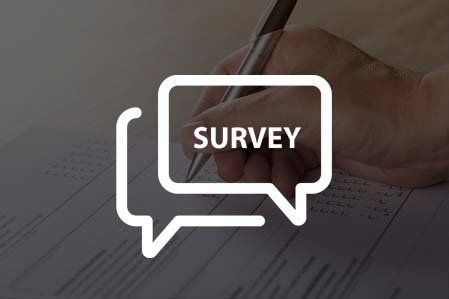+1-800-298-3165
A beginner’s guide to negative SEO
Ilya Nasedkin • 6 March 2020
What it is, what the signs are and how to fight it

Negative SEO. It’s something that you don’t tend to hear much about, meaning when it happens to your site, it can be difficult to know what exactly has taken place and how to fight it. Luckily, we’re here to help with our guide to this under discussed aspect of search marketing – and we have plenty of tips to check if you’ve fallen victim and what to do next.
So, what exactly IS negative SEO?
Negative SEO is a campaign conducted against your site by a third party (often a competitor) in order to cost you search engine ranking places. The person conducting negative SEO will deploy a range of underhand tactics against your site in order to give Google, or other search engines, reasons to send you sliding down the ranks.
The protagonist will do all they can to negatively impact your keyword rankings and remove search visibility, such as copying your content, or fraudulently asking other websites to remove a back link to your site by posing as someone connected to you. They may also create lots of poor quality links back to your site in order to encourage Google to see your domain in a negative light.
What are the signs of negative SEO?
• Your website traffic falls and you can’t find any reason for the dip
• You suddenly start to lose search positions despite not changing your own SEO tactics
• Your receive a notification of a penalty or issue from Google, without having done anything against their guidelines yourself
• Your link reports show a sudden number of new links from poor quality sites you don’t recognise
• Your link reports show you’re suddenly losing good links
Steps to take
Perform a link audit
A lot of negative SEO revolves around sending large quantities of very poor links to a target website. If you regularly monitor your inbound link profile (as you should!) you will notice when a suspicious number of links you haven’t built start to emerge. You can then be proactive about getting those links disassociated – either by contacting the site’s in question and reporting the link be removed or by submitting a link disavow report to Google.
Monitor for scraped content
Taking your own content and duplicating it around the web can lead your site to see a fall in rankings as Google will only index that content once. That means if another site, using your own content is indexed, your own search rankings can call. You can use tools to automate this process for you – something like Copyscape will crawl the web and report back to you with any duplicate copies of your content. It will show the percentage of content that is replicated and provide the link to that URL. This means you can contact the site and request the content be removed, citing copyright infringement. If that doesn’t work, report the breach to Google using this form.
Be proactive about review monitoring
Another form of negative content sees one star reviews left for your brand on review sites. If you monitor your online reviews and spot a fake one, report it to the platform concerned and request its removal.
.
Share this post:
Popular Posts

by Eazi Business
•
21 September 2021
Starting a new business is not easy. There are a lot of things to consider and decisions to make. It’s also important to avoid investing your hard earned money in a business that does not give you a great return. Small mistakes in the early stages can manifest themselves into bigger problems further down the road.

by Rebecca Appleton
•
16 August 2019
We are incredibly proud to announce that Eazi-Apps have been named a Silver Stevie® award winner for International Company of the Year 2019. It is an honour and a delight to accept this award from the 16th Annual International Business Awards® which will be celebrated in Vienna later this year.

by Eazi Business
•
31 December 2018
Starting a new business can be time-consuming and difficult. The first challenge is to find or build a great product or service that your customers need. You will also need to create a brand, develop marketing collateral, design a website, find customers, and develop a range of new skills. You will most likely have to hire a team of experts to help you get started.
Recent Posts

by Eazi Business
•
18 February 2025
For digital service providers, the difference between success and stagnation lies in creating long-term value for clients. Moving beyond one-time projects and building lifetime client relationships can transform your business into a reliable, recurring revenue model. Entrepreneurs who master this approach can achieve sustainable growth while helping their clients succeed in an ever-changing digital landscape.

by Eazi Business
•
17 February 2025
In today’s fast-paced digital world, businesses need powerful tools to create, manage, and optimise mobile applications efficiently. That’s why we’re excited to introduce the new Eazi-Apps CMS —a next-generation platform designed to streamline app development like never before. Built-in collaboration with a leading technology partner, this enhanced system offers cutting-edge features, improved usability, and exclusive benefits for our partners.

by Eazi Business
•
11 February 2025
The digital landscape continues to evolve, creating unprecedented opportunities for entrepreneurs. In 2025, the demand for digital services like website development, mobile apps, and SEO is higher than ever. If you’ve been considering launching your own digital services business, there’s no better time to start than now.
The Old School House, 65A London Rd, Oadby, Leicester LE2 5DN
Phone:
+44116 296 2488
Email: info@eazi-business.com
Co Reg: GB08364226
VAT No: 161014655
Copyright © 2022 Eazi-Business. All rights reserved.






